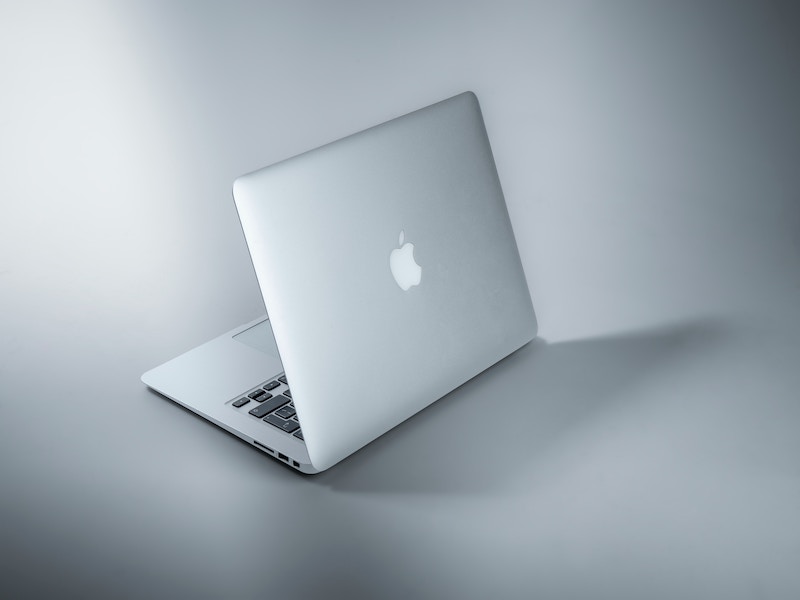Apple’s triumph in storytelling hides some inconvenient truths
It’s been heralded as a triumph in storytelling. Apple’s latest sustainability video features familiar faces, like that of CEO Tim Cook and actress Octavia Spencer. But it also features an unfamiliar one, none other than ‘Mother Nature’. In the video, Cook promises Mother Nature that all Apple products will be carbon neutral by 2030, as part of their commitment to become net zero. The video has been lauded as best in kind for how to effectively communicate a commitment to sustainability. Only there are a number of issues with their commitment that should raise more than a few eyebrows — here are seven of them.
1. Apple is a Public Limited Company
The suggestion made in the advert is that we all depend on Mother Nature, so every decision we make should prioritise the well-being of the planet. In other words, Mother Nature should be our one and only stakeholder because if she isn’t healthy, then the societies that depend on her won’t be either; it’s that simple. The issue with Apple’s ode to Mother Nature is that Apple happens to be one of the largest public limited companies (PLC) in the world. So why does that matter?
The fact Apple is a listed company means investors can buy and sell stock in the company. What this boils down to is an inconvenient truth — Apple’s priority when it comes to decision-making must be its shareholders. If Apple were to genuinely prioritise Mother Nature and forsook profits as a result, it would undermine the interests of those shareholders as it would likely result in a drop in their stock price. If they took such a radical approach, you can be confident those shareholders won’t be shareholders for long.
The bottom line when it comes to PLCs is that their one and only stakeholder is their shareholders, and they meet their needs by making decisions that will maximise profits — regardless of the consequences to nature.
2. Apple’s commitment doesn’t go far enough
It’s all good and well setting targets to achieve carbon neutrality by 2030, but as the latest Planetary Boundary study shows, reducing emissions is just one element of the ecological crisis. The climate is one of nine biophysical boundaries that are critical in maintaining the current environmental conditions. Breaching any of these boundaries creates a risk of triggering tipping points that could induce profound changes to the environment. The study shows we’ve breached six of the nine boundaries.
Making a commitment to become net zero lasers in on one of the boundaries, climate change, and so doesn’t go nearly as far enough to ensure Apple reduces its impacts on Mother Nature. The problem for Apple is that their hands are tied. To keep on increasing revenue (a prerequisite of maintaining a healthy stock price), they must sell more products. To sell more products, they need to use more resources. Those resources don’t come from thin air; they come from Mother Nature. So even if they do achieve carbon neutrality, that doesn’t mean Apple’s business operations won’t be undermining Mother Nature in other ways.
3. Apple continues using sweatshops
It’s hard to imagine Mother Nature being so impressed by the fact Apple is happy to continue using sweatshops, where workers can earn as little as £1.12 per hour, to make their products. Saying Mother Nature is the one and only stakeholder neglects a rather important element of moving to a sustainable society. People, or more specifically, meeting human needs, are just as important as Mother Nature in creating such a society.
Extreme levels of poverty remain rife, no thanks to the fact that companies like Apple continue employing sweatshop workers because doing so reduces costs, which helps that all-important bottom line. The fact Apple are happy to use sweatshops is a sign that they remain committed to the interests of shareholders, not to Mother Nature, and certainly not to those who make their products.
4. Apple’s blood batteries
Cobalt is needed to make the batteries used in Apple’s products. The biggest Cobalt mines in the world are in Congo, where workers, including children, work in horrifying conditions for scant reward. Apple is complicit in sourcing its Cobalt from these mines. In fact, Apple, alongside some of the leading tech companies in the world, was taken to court in 2019 by Congolese families who say their children were killed or maimed while mining for cobalt.
Apple is committed to using 100% recycled Cobalt for batteries by 2025, but that won’t stop the horrific conditions endured by the miners, and it certainly won’t wipe the blood off of the company’s hands.
How refreshing would it be if Apple not only made a commitment to use 100% recycled Cobalt for batteries but also used its enormous wealth and resources to put an end to the horrific conditions suffered in those mines? That seems unlikely because it would come at a cost with no financial benefit to the company, which would impact profits and the interests of those shareholders.
5. Apple products are unaffordable to most
An iPhone 15 costs £999, while a MacBook Pro costs from £1,349. Their products are renowned for their expense and clearly are unaffordable to a sweatshop worker earning £1.12 per hour or a miner in Congo.
It seems morally questionable that the people who produce a product don’t earn enough to buy it. This is a problem with companies championing sustainability generally. Take a company like Patagonia, a company that is considered a shining light in sustainability and yet its products are unaffordable to most. It raises questions about what a sustainable society actually looks like. And yet, this morally questionable state of affairs seems just fine when shareholders are benefitting so handsomely.
6. Apple pay Tim Cook an extortionate amount
The fact workers can’t afford the products they make ties into another questionable element of Apple’s storytelling triumph.
In 2021 Tim Cook earned nearly $100 million, over 1,465 times the median pay for Apple employees of $68,254. The fact Cook gets paid so much explains why workers who make Apple products get paid so little. Cook’s salary is also a graphic symbol of inequality. Some live in decadent splendour, while others don’t have enough to eat or meet basic needs.
The fact a few earn eye-watering sums while workers struggle to meet needs is hardly a sustainable state of affairs. It would be interesting to hear what Mother Nature thinks about it all.
7. Apple cares about its reputation
In the advert, Apple claims Mother Nature is all-seeing. Well, so are lots of people who won’t be fooled by Apple’s stylish video. Apple didn’t make the video because they care about Mother Nature or society. The video is nothing more than an effective public relations piece, which will help to increase the brand’s reputation and image, which ultimately will encourage more people to buy Apple products. And here, we get to the underlying motivation for the snazzy video. Increased sales will ultimately push up the stock price. Because, lest we forget, Apple’s one and only stakeholder is their shareholders, and so every decision it makes simply must seek to benefit their interests.
Mother Nature isn’t fooled
The latest planetary boundaries study is a timely reminder that while companies like Apple appear to be making genuine efforts to transform business practices for the common good, the picture on a planetary scale shows the risk of triggering tipping points continues to increase. And that’s before we get to the social side of sustainability. Ultimately companies pick the parts of sustainability that suit their business practices, and of course, help them to either maintain or increase financial performance.
Financial performance is the key decision maker; it has to be in competitive markets because every company exists within an economic system that compels them to make decisions that will help increase revenue. If financial performance isn’t the priority, they’ll soon go out of business, which is hardly the road to sustainability, is it? The uncomfortable reality is that it is the overall economic system that is unsustainable by design. It’s this system that creates the rules of the game that govern behaviour within businesses and boardrooms. So unless the economic system changes, then nothing is going to stop teh current trajectory we’re on. That, unfortunately, is the bottom line.



